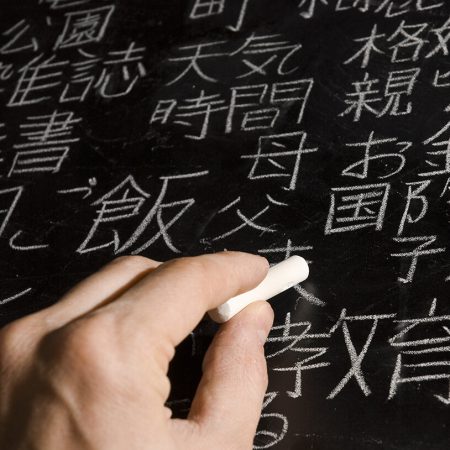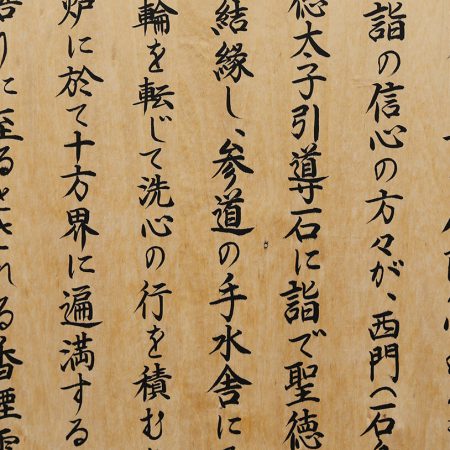Tips for learning business Japanese

You must have heard about how intricate the Japanese business culture is. Many foreign business people express hesitance in delving into business with the Japanese because it’s challenging! The way people do business in Japan is way different from the West. Are you on your way to your first day of work in a Japanese company? Or are you about to negotiate with Japanese people in business? Then learn about Japanese corporate values and systems!
Table of contents
Work in Japan: Learning the Japanese Business

Understanding the way the Japanese do business is more eye-opening rather than challenging. Of course, adjusting will take time and effort, but you’ll soon get the hang of it. The Japanese are all about organizations, and they have their distinct way of keeping things organized. If you’re an employee or a businessman in Japan, here are some things you should learn about:
Quality First

Quality is always a priority in any Japanese business. Everything a company does is to be able to offer the best quality of products and services to consumers. The rest of the article will focus on how quality is put first in every Japanese business. Knowing that Japanese consumers oppose any product defects, business people aim to provide only the best of the best. This also means that they expect nothing less from employees or other people in the business.
Japan implements total quality control in all manufacturing phases and work processes. You might see it as a result-oriented approach, but it goes beyond that. Good quality is the endpoint, but the process of getting there matters most.
Total quality control also helps business people avoid wasted resources. Having a standard for manufacturing, employment, and business partnerships only ensures more opportunities. Read on to know how the prioritization of quality greatly influences the business culture in Japan:
Kaizen

Since quality is a priority, Japanese businesses also apply this to their work ethics. Kaizen(改善)is a business mindset that all Japanese companies use. Kai(改)means “change” and zen(善)means “good.” Often lost in translation, kaizen could be translated as “continuous improvement.” As a mindset, kaizen is “felt” or “sensed” rather than “understood.” What is this, and how do Japanese companies thrive with it?
Kaizen is a philosophy of creating the best value and quality for the consumers. It is applied to management operations in every organization, but it is more than a mere activity or technique. Kaizen is all about changing, starting with the small things in the business. Japanese businesspeople believe that small changes always go a long way, which makes them even more valuable. With kaizen, both employees and employers are influenced to create high-quality products or provide the best services for the customers.
Small changes, such as moving a desk in the office, can have big impacts. If the simple moving of a desk can mean better communication between colleagues, then it will enhance productivity and efficiency. Japanese businesses aim for continuous improvement that can help the company in the long run, which makes them very welcoming to constant change. They also have a 5S system that makes Japanese businesses even more distinct and functional: seiri(整理), seiton(整頓), seiso(清掃), seiketsu(清潔), and shitsuke(躾).
The first stage, seiri, involves sorting all the tools and materials used in a work process, while keeping all the necessary ones for continued use and storing the others. Seiton is when useful tools are organized for orderliness. Keeping the workplace clean is under the seiso phase, while seiketsu standardizes the whole process and everyone must be aware of their responsibilities. Lastly, shitsuke is sustaining the process, supporting the long-term goals of kaizen.
Decision-Making

Since quality is a huge deal for Japanese businesses, you can also see how particular they are with management through their decision-making. When negotiating with Japanese business people, you can expect them to take so much time in deciding. In the Western business culture, decisions and actions are often done right away. With the Japanese, you will need to have enough patience.
Japanese people in business take time to get to know their partners and their goals. Most of the time, their decisions are “consensus,” so everyone involved has to discuss and contribute to the agreement. Knowing this part of the process can be enough, but having someone who had grown up in the culture is much more helpful. As such, traveling for business to Japan with an interpreter is ideal.
It could take lots of trips to Japan for you to adapt and understand how Japanese businesses work. The lengthy decision-making process could also be a negotiation tactic, but it’s really how the Japanese do business. Making well-thought-out decisions significantly affects the management, the efficiency of workers, and the quality of the product or service. Most importantly, every decision made has to be for the good of everyone.
Hourensou

Wondering how the decision-making process can take so long? Japanese companies also religiously follow the hourensou method. Hourensou(報連相 or ほうれんそう)is made up of 3 tasks that every worker must accomplish when working on a project. To be 100% certain that everyone is on the same page and that everything is on time, communicating with the involved colleagues is a must. You could have a couple of discussions and confirmations, just as long as nobody falls behind on the project!
First is the houkoku(報告 or ほうこく)or the reporting. Regularly reporting your progress, issues, and ongoing tasks to your superiors makes it easier to keep track of the project’s status. With this, reassignments are also done before it’s too late, avoiding wasted resources. When working in a Japanese company, you will most probably find yourself communicating with your bosses more often.
Japan is known as a “collectivist society,” which means everything is done in groups. In the Japanese business culture, every project requires a team, and that means renraku is just as crucial as houkoku. Renraku(連絡 or れんらく)is informing your colleagues of the necessary updates. You have to keep everyone in the loop, regardless of the project being advanced, on time, or delayed. This process will show you how cooperative every member should be. Moreover, everyone also gets to recognize each other’s efforts!
Lastly, Soudan(相談 or そうだん)is when you actively consult with your colleagues or clients. As a team player, your task affects your colleagues’ responsibilities. It matters when you consult first when encountering an issue before you act on it. Every problem in a business has a solution, and this can be made with the collective effort of the team. Remember, you move as one with your coworkers to achieve the best quality in your work, so prioritize regular consultations!
Etiquette

When entering a Japanese company, it’s necessary to know your way around with the etiquette. Some minute details in other countries’ business culture can make a huge difference to your performance when in Japan. With Japan’s relationship-oriented approach to business, you can easily fit into your new culture by learning about these things:
Keigo.
In English, keigo(敬語)means “to respect or admire.” Hierarchy is fundamental when it comes to Japanese business, so showing the right respect through your actions and your words to different people is essential. Keigo is a respectful, polite, or humble way to talk, depending on the person you’re talking to. Seniority matters in a Japanese workplace, so know your honorifics. Keigo is just as challenging to the native speakers as is it to the foreign learners, but studying and practicing will help.
Ojigi.
In the West, you might be more accustomed to shaking the hands of the people you’re talking to. In Japan, you will have to practice bowing. Ojigi(お辞儀)or “bow” is one of the ways to communicate respect in the Japanese culture. Both a greeting and a sign of respect, bowing could mean that you are lowering yourself to the other person regardless of your social status. Of course, there are also different ways of bowing, depending on the person you’re interacting with. Add the ojigi to your to-learn list!
Meishi.
Another thing to take note of is the importance of meishi(名刺)or business cards. In Japan, business cards are taken seriously as they are like talismans to business people. It’s important to have your own, and respect others’ just as how you respect yours. Business cards are more than just a piece of paper with your contact details. They represent you as an individual! The way you give and receive business cards in Japan also matters, so take the time to ask or observe.
Just like in other countries, showing up on time or even earlier is a great sign of respect. You have to keep that in mind as well! Japan is very particular with time, so be sure to respect others’ time and arrive at meetings or events early. Once u know and practice the basic do’s and don’ts, you’ll be just fine!
Nomikai

Photo by Kunie Hiyamizu on Flickr
Perhaps the most exciting thing about the Japanese business culture is the nomikai. If you have heard how hardworking the Japanese are, you also must have heard how hard they drink! Drinking with colleagues could be just a recreational and outside business activity for other nations. In Japan, this could be considered as a part of the Japanese business culture.
Nomi(飲み)means “to drink” in English, and kai(会)is “gathering.” Nomikai(飲み会)then is drinking with colleagues as part of your job. Japanese business persons are also known for being quiet in their work environment; this seems to fade during the nomikai. You get to talk with everyone in the company, although you still have to figure out where you should sit. One rule is to let other people pour your drink for you. And remember, the nomikai can also be for doing business deals!
The Japanese believe that good ideas can be made and shared when drinking. This means the nomikai is not just about drinking alone. It is also about developing good business relationships with your colleagues or clients. There are various unspoken rules during the nomikai, such as keeping whatever happened during the gathering to yourself. And regardless of how bad your hangover is, you still have to show up at work! Nomikai is an invitation that is hard to turn down, so make sure you’re ready for it.
Conclusion
Given that Japan is the 30th freest economy in the 2019 index, working or having business partnerships in Japan is indeed a worthy venture. If it’s your first time, the culture can be intimidating and confusing. But once you welcome the differences and slowly adapt, you will see just how well-organized their approach to business is. Are you ready to succeed? Learning is the first step, so you’re already on your way!
Motto Japan, the community platform to support foreigners with the foundation for life in Japan, including Japanese study, job opportunities, and housing service. Motto Japan Media will provide a wide variety of information for Japanese fans all over the world, to create a cross-cultural environment and enrich the life of foreign residents in Japan!













Leave a Reply